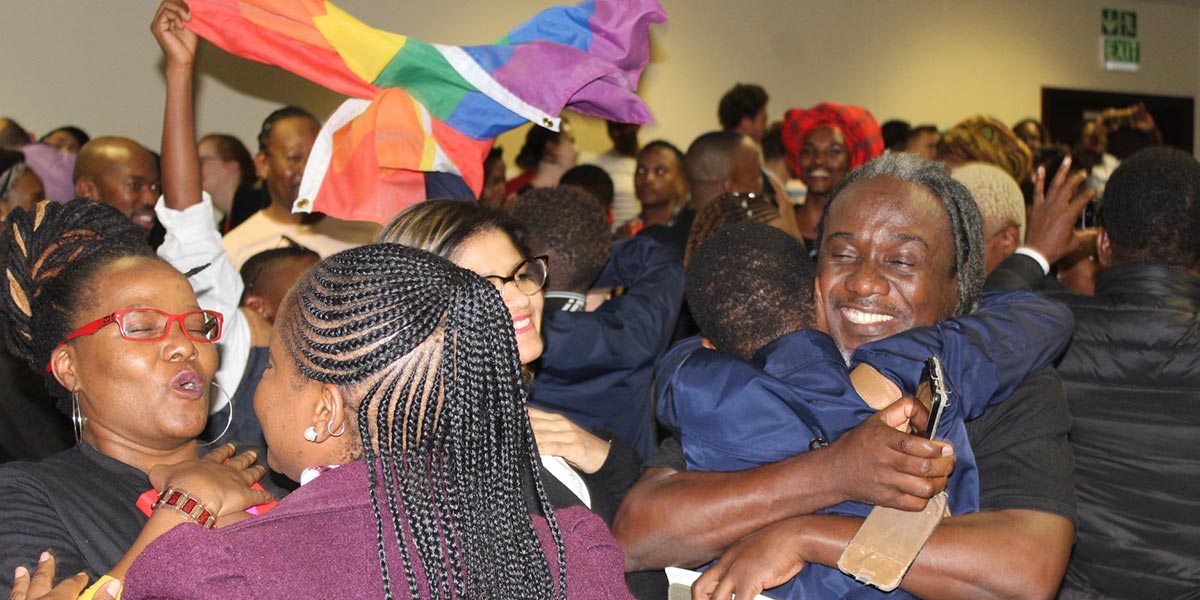Botswana should inspire other African countries on LGBTQ rights

Celebrating Tuesday’s victory in court (Pic: Legabibo / Twitter)
Activists have called on other African countries to follow the inspiring example of Botswana after it legalised consensual same-sex relations on Tuesday.
The High Court in Botswana found in a unanimous decision that the nation’s “sodomy laws” violate privacy, liberty, and dignity; are discriminatory, and serve no public interest.
“Sexual orientation is not a fashion statement,” said the judges. “It’s an important attribute of one’s personality. All people are entitled to autonomy over their sexual expression.”
They noted that “Public opinion in cases like this is relevant but not decisive. This is about fundamental rights more than the public’s view.”
The court added that sodomy laws belong “in the museum or the archives,” and should not govern present-day life.
Botswana is the latest country in Africa to decriminalise same-sex relations, following Angola in January 2019, Seychelles in June 2016, Mozambique in June 2015 and São Tomé and Príncipe, and Lesotho in 2012.
However, another 29 countries in Africa retain laws criminalising same-sex relations, including Kenya, where a law banning gay sex was upheld by the Kenyan High Court in May.
“With this ruling, Botswana has said ‘no’ to intolerance and hate and ‘yes’ to hope and equality for all people,” said Muleya Mwananyanda, Amnesty International’s Deputy Director for Southern Africa.
“For far too long, people entering same-sex relationships in Botswana were discriminated against by the very same laws that are supposed to protect them. This court decision marks an exciting new era of acceptance, which should inspire other African countries to follow suit.”
Said Neela Ghoshal, senior LGBT rights researcher at Human Rights Watch: “The court ruling is a victory both for LGBT people in Botswana and for LGBT people and their advocates throughout Africa.”
Prior to independence in 1966, Botswana was part of Bechuanaland, a British protectorate, and the country’s anti-homosexuality laws are a legacy of British imperialism. Many countries around the world retain similar colonial era provisions targeting LGBTQ people.
“Botswana’s High Court has provided a ray of hope to millions around the world who live in jurisdictions that still criminalise same-sex conduct,” said Ghoshal. “Botswana’s government should embrace this ruling and affirm the full personhood of its LGBT population.”
Leave a Reply